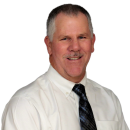The Focused Student: How do students see the role education plays in their lives?
- Share via
Have we ever asked students what they think the role of education should be? What kind of teaching style or presentation they best learn from?
Researchers, educators and psychologists have for years decided what would be best for students. After all, what would a student know about teaching at such a young age? But have we ever asked students about how they feel as the receivers of information? These are the people we are trying to reach. While they may not have a scientific background to back up their conclusions, they do know what keeps them engaged and interested.
With that in mind I put together a small focus group of 15 students at our school. This was a sample of mostly male students who have struggled with school; bright, with untapped potential. The majority of them felt that some sort of college (probably community college) was in their future. The question of “What should be the role of education?” was met with four different ideas.
An overwhelming majority of the students agreed that school should better prepare them for jobs and life outside of home and school, meaning a practical education that included budgeting, balancing checkbooks, understanding taxes, time management and job-seeking skills.
The second purpose for school, according to these students, is a little broader. They felt school should help them develop greater social awareness, in part by developing a better world view. In other words, teaching how to manage/maintain social relationships they will encounter in a larger community such as the world of work or college.
The third purpose they cited was equipping students for a job or college, depending on the path. The more subtle quest was for education to help them find and develop a passion that they could turn into a job or career.
The final purpose the students came up with was for education to help them identify and solve the world’s problems and help them become capable of making sense out of the flood of information coming at them and determining what is true, what is fiction, when to act or not act, and how to act or not act.
Now comes our part, as educators and parents. We need to reflect and ask, “Are these educational objectives valid and if so, are we achieving them with the current structure and curriculum?” I think the students identified some important elements that should be part of contemporary education. But perhaps we also need to be doing a better job of showing students how subjects such as history, math, science and writing do accomplish the goals they cite.
My takeaway from the focus group was that too many students don’t see the practical application of what they are learning in the classroom. They don’t see that writing well is a job skill, or that history provides the knowledge they need to understand current events in context. They don’t fully grasp the ways in which knowledge of math and science make them better able to separate the meaningful from the meaningless in the information they are flooded with every day.
It’s on all of us, as parents and educators, to work at connecting these dots so that students see how relevant their education already is. At the same time, we need to listen and respond to their interest in having an education that prepares them for the world as it is today and as it will be tomorrow.
